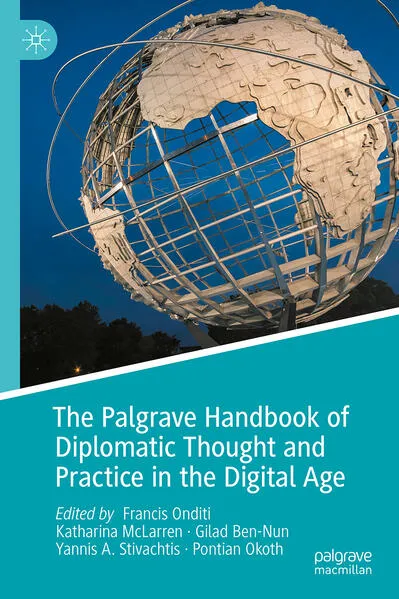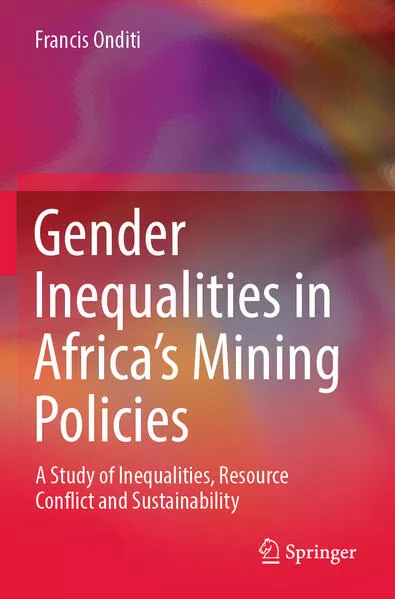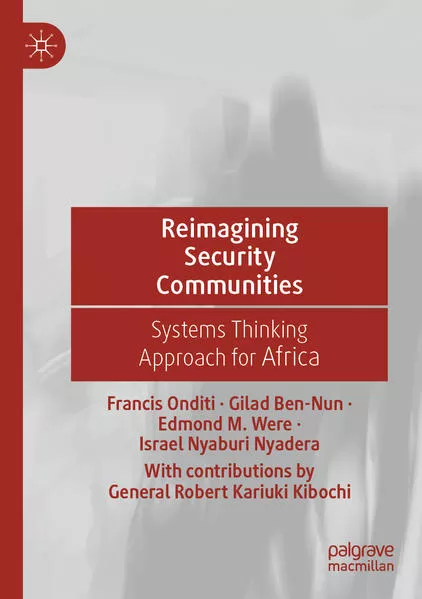
- Publikationen ca: 4
- Gefolgt von 1 Nutzern
- Fragen & Antworten
Onditi, Francis
- The Palgrave Handbook of Diplomatic Thought and Practice in the Digital Age
- Gender Inequalities in Africa’s Mining Policies
Francis Onditi heads the School of International Relations and Diplomacy, Riara University, Kenya. He is a Distinguished Author and Research Professor at the Institute of Intelligent Systems, University of Johannesburg, South Africa. He is the 2019 recipient of the AISA Fellowship awarded by the Human Sciences Research Council (HSRC), South Africa, for his tenacious research and scholarly work on ‘positioning African States in the Dynamic Global System.’ Dr. Onditi is a widely published pan-African researcher specializing in the geography of African conflict and institutional evolutionary theory. He has published numerous research papers in peer reviewed journals, contributed several papers to edited books and authored/co-edited 3 books.
Gilad Ben-Nun is a Senior Lecturer at Leipzig University’s Research Centre Global Dynamics, Germany, as well as a Senior scholar at the Leibniz Institute GWZO, where he teaches Global Studies and the History of International Law. A former EU - Marie Curie Individual fellow at Verona University’s law faculty, and a former Ford Foundation Fellow at the United Nations Institute for Disarmament Research (UNIDIR) in Geneva, he currently leads Leipzig University’s engagement in the EU-funded PREVEX Consortium studying comparatively Islamic Extremism in the Balkans and North Africa. In 2020, he was awarded the visiting professorship for Israel Studies at Ludwig Maximilian University in Munich, in association with the American University in Washington DC. In 2021 he was awarded the Alfred Grosser Chair at the French National University for Political Sciences – ‘Science Po’.
Edmond M. Were is an Associate Professor of Peace and Conflict Studies currently in Kisii University, Kenya. He has previously taught in Universities in Kenya and Rwanda where he has risen in the ranks of the academia including Moi University, Masinde Muliro University of Science and Technology and Kigali Institute of Education (now College of Education of University of Rwanda). He was a Lead Researcher in the DfID funded EdQual Research Program Consortium on Implementing Education Quality in Low Income Countries and the Small-Scale Research Project on the NEPAD eSchool Project. He is a Deutscher Akademischer Austauschdienst (DAAD) and Canadian International Development Agency (CIDA) scholar. He has widely published articles and coauthored tertiary level texts in local and international journals and publishing houses.
Israel Nyaburi Nyadera is a Teaching Assistant at the Department of Government and Public Administration, University of Macau, and a Doctoral Candidate at the Department of Political Science, Ankara Yildirim Beyazit University, Turkey. He holds an MSc, International Relations from Middle East Technical University, Turkey, and a BA Political Science from the University of Nairobi, Kenya. He has been a visiting researcher at the University of Milan, Italy and a Kautilya Fellow with the Indian Foundation. His research interests are International Security, African Affairs, and Governance.
General Robert Kariuki Kibochi is the Chief of the Kenya Defence Forces. General Kibochi was enlisted into the Kenya Defence Forces on 18 May 1979 and underwent Officer Cadets Training until 30 March 1980 and commissioned in the rank of Second Lieutenant and posted to Signals Battalion. He has held various command and staff appointments including his immediate former appointment as Commander of the Kenya Army. Lt Gen Kibochi has earned Masters Degree of Arts in International Studies, Masters Degree in Computer Based Information Systems, Bachelors of Technology in Communication and Electronics Engineering, and is currently pursuing Ph.d degree in Peace and Conflict Management. His other professional training includes National Security Studies at the National Defence College (Kenya). Army Command and Staff Course (UK), Overseas Telecoms Engineering Course (UK), Signal Officers Degree Telecommunications Engineering Course (India), Sub Unit Commanders Course, Platoon Commanders Course, Regimental Signal Officers Course among other training courses. He served with the United Nations as Commander of Kenyan Contingent in the United Nations Mission in Sierra Leone (UNAMSIL) from 2000 – 2001; while his decorations include Moran of the Order of the Golden Heart (MGH) and Chief of the Order of the Burning Spear (CBS) among others.

The Palgrave Handbook of Diplomatic Thought and Practice in the Digital Age
This handbook integrates a range of conceptual and empirical approaches to diplomacy in the context of ongoing technological and societal change. Technological and societal disruptions affect modern diplomacy, altering its character and reforming its way.

The Palgrave Handbook of Diplomatic Thought and Practice in the Digital Age
This handbook integrates a range of conceptual and empirical approaches to diplomacy in the context of ongoing technological and societal change. Technological and societal disruptions affect modern diplomacy, altering its character and reforming its way.

Gender Inequalities in Africa’s Mining Policies
This book develops a discursive ‘equalitarian’ theoretical framework for studying African mining ecosystem issues and policy interventions. The theory of ‘equalitarianism’ is developed as an alternative to the reductionist approach that has dominated post-colonial debates about the classical jus ad bellum requirements to empower women in development spaces.

Reimagining Security Communities
This book utilizes a systems thinking perspective to propose a holistic framework of analysis and practice for the regional security community (“RSC”) arrangement in Africa. In responding to the challenge of improving effectiveness of response to peace and security threats, African states tend to rely on ad hoc mechanisms.